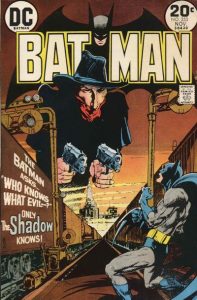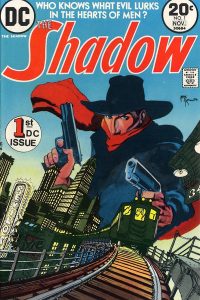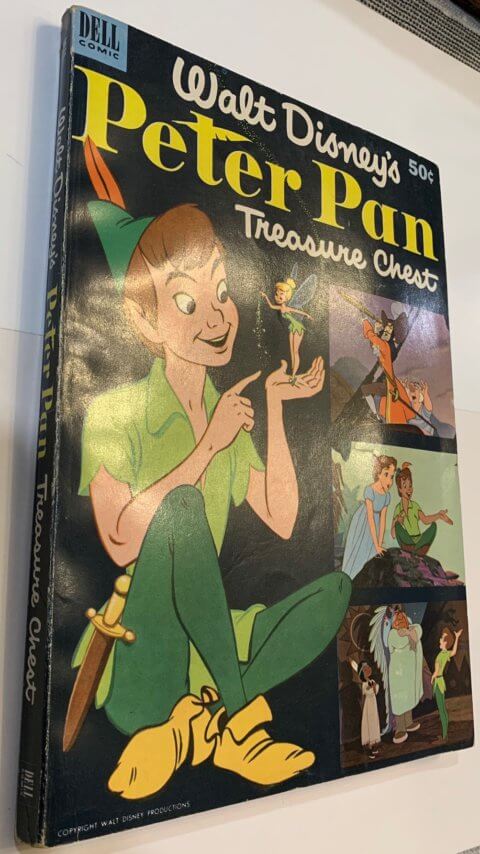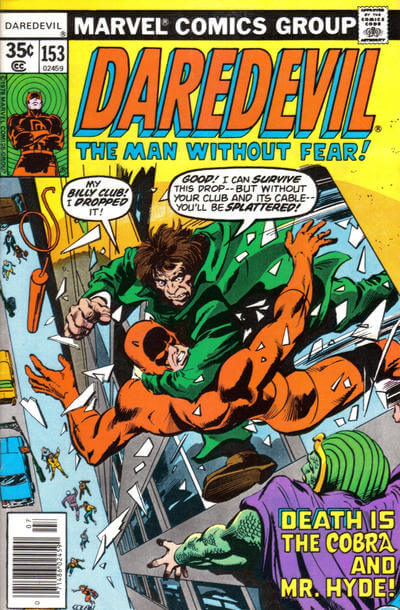 Batman #253, DC Comics, November 1973
Batman #253, DC Comics, November 1973
Batman comics from the early Bronze Age are some of the most collected comics in the hobby. Our friend Neal Adams had a lot to do with this thanks to his stellar work; Beatles cover (#222), Golden Age classic cover swipes (#227), major character introductions (#232), major character re-introductions (#234) and some iconic covers (#251) all make Batman issues from this era in demand comics.
Batman from this era has more to offer than just Adams though, the 100 pagers that started at #254 all enjoy strong demand. There are some sleepers in this mix too and one of them, Batman #253, is this week’s Undervalued Spotlight.
Batman #253 offers up a striking Michael Kaluta cover featuring the Shadow.
The issue has the Shadow mysteriously and anonymously helping out Batman, once the criminals have been caught the Shadow reveals himself. Batman lets the Shadow know that he inspired Batman’s career and asks him to come out of retirement to continue to fight the good fight. The Shadow disappears, hinting that he’ll be back.
DC Comics in the early 1970s was all about noirish, macabre storytelling so they thought it a good idea to adapt the Shadow into the DCU. Mike Kaluta and Denny O’Neil launched the Shadow in his own title the same month as our Spotlight issue. What a better way to introduce new fans to a Batman inspiring character than to feature him in the pages of Batman.
Kaluta and Denny O’Neil launched the Shadow in his own title the same month as our Spotlight issue. What a better way to introduce new fans to a Batman inspiring character than to feature him in the pages of Batman.
Batman #253 is the 1st meeting of the 2 characters I believe and the whole thing should be a bigger deal. This should be a way bigger book than it is. This is the DC adaptation of the Shadow, the same Shadow that is cited as the main inspiration for Batman.
The Shadow dates back to the very early 1930s, he started off as a voice on the radio narrating other crime stories. The public loved the creation and wanted to hear Shadow stories and the character was rewritten as the lead. He was the king of radio and also became the king of the Pulps. I found countless articles online citing the character as a big influence in the creation of Batman.
Batman #253 is ho hum on the markets, a CGC 9.2 got $96 recently while a CGC 9.4 sold for $135 on ComicLink last week and the last CGC 9.6 sold for $175.
This book has been lost in the Adams era, published just before the 100 pager run and generally just ignored. I say the event is too momentous and the cover is too strong for this book to stay this quiet.
The 47th Overstreet price break for this book is $34/$60/$85 in the 8.0/9.0/9.2 grade splits.
Reasons to buy this comic book as an investment:
- Fantastic Michael Kaluta cover
- 1st meeting of Batman and the Shadow




Although the Shadow is often listed as an influence for Batman, I think you really have to go a bit further back. Of course, it’s always difficult to know where one influence starts and the other begins. But I would say you should look back to the the Jimmy Dale series of stories by Frank Packard, mostly from the 1910s/1920s. He was probably a strong influence on the Shadow, but he was almost point for point an influence on Batman. Rich playboy – check. Butler who tends to him – check. Secret identity that rights wrongs and makes criminals afraid (the Grey Seal) – check. Secret identity as a drug addled criminal who can move about freely in the criminal world – check. The Jimmy Dale stories are incredibly melodramatic for today’s age, but if you can get past that, the influence on the Shadow and Batman is interesting to say the least. And the descriptions of New York at the turn of the previous century are great.
Don’t got it. 🙁
Thank for posted it. I checked to see if I have this original copy. Yep, I do. Cheers!
Great info Robin, thanks.
Does anyone know what The Shadow’s 1st comic book appearance was?
Hey Walt
You mention the Shadow’s radio and pulp appearances, but I’m afraid you failed to mention too that there was a great run (just over 100 issues) of Shadow Comics issued by Street and Smith from 1940 to 1945. So this is kind of a revival of the character in the funny books. Now THOSE buggers are hard to round up, and I’ve never heard of anybody having a complete run; most people are happy enough to find the odd copy every once in a blue moon. I love this pick as much for that reason as any of the others (although with Kaluta and Adams you could hardly go wrong).
cheers, mel
Not sure what the 1st Shadow comic is???
Hey Mel, I love those Shadows from the 40s – they had some fantastic covers
Walt
You’re right about those covers. Absolutely beautiful. I guess that’s because Street and Smith also published pulps and had a great stable of cover artists already available. Walter Gibson (a.k.a. Maxwell Grant) introduced the Shadow in The Shadow Magazine in 1933, and the comic debuted March 1, 1940 and would go on to include the work of artists Vernon Green, Jack Binder, Charles Coll and later the great Bob Powell. That’s a pretty stunning line-up. I would imagine, since it’s a Street and Smith commodity in the first place, the first of their comic versions is probably indeed the first Shadow comic.
This is what I love about these posts. They always make me tap my brain or go in search of those tidbits that have fallen prey to my bad memory. Thankfully, this time, most of that stuff was still up there rattling around. Thanks for jogging the old brain box!
cheers, mel
Mel is probably correct about the first issue of the Shadow comic book in March 1940 being his first comic book appearance. I am not aware of an earlier appearance and Street and Smith would have been very protective of their character at this point. But just in case anyone missed it, the Shadow debuted as a full blown “hero” character written by Walter Gibson in April of 1931 and not 1933. Gibson had actually started to write that first novel in January of 1931, and it was originally called called “Murder in the Next Room” but was changed to “The Living Shadow” when it was published. By October of 1932, the magazine was so popular that it was being published twice a month. In terms of the radio show, it began on July 31, 1930 as Detective Story Hour and then two weeks later became Detective Story Program in support of Street and Smith’s Detective Story Magazine. The narrator was a mysterious voice that quickly morphed into being called the Shadow. When S&S became aware that people were starting to ask for the shadow magazine instead of Detective Story magazine, they set Gibson to work on the new product. The result, as they say, is history.
Thanks Robin. that Detective Story magazine completely slipped my mind. Like I say, rigours of old age.
cheers, mel
Hey Walt
Look what ripples grow when you toss that old nostalgia stone in the pond!
I hope you realize just how much the effort is appreciated. Thanks again!
cheers, mel
Thanks for contributing to the discussion Mel